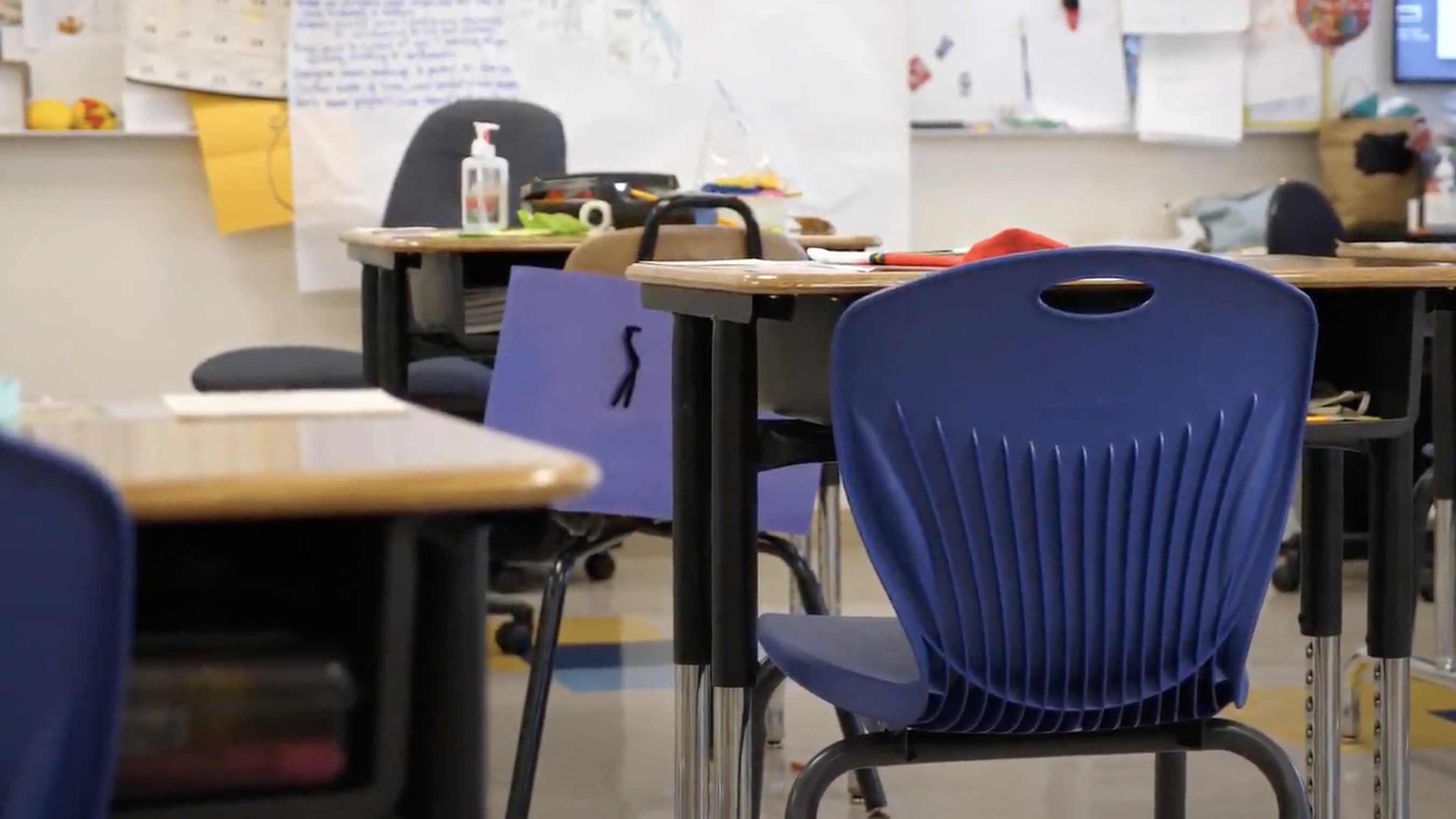Legislative proposal is aimed at easing COVID-19 classroom shortages
Posted: February 2, 2022
Licensed teachers who have retired would be allowed to temporarily work as teachers by the Hawaii State Department of Education during a state of emergency within a year of their retirement, under a bill that received initial approval by a state House committee Tuesday.
The House Committee on Pandemic and Disaster preparedness voted in favor of HB1736 and it will next be heard by the House Education and Finance committees.
Existing state law prevents a retiree from being employed as a teacher within 12 months of retiring. This temporary law change would allow recently retired licensed teachers to return to the workforce, helping to mitigate the teacher shortage and create the opportunity for all of our students in Hawaii to receive an uninterrupted, quality education.
“To temporarily allow our retired licensed teachers to return back to teaching and provide us with more licensed teachers that we desperately need right now, the Hawaii State Teachers Association asks your committee to support this bill,” said HSTA President Osa Tui, Jr. in written testimony to the House panel.
Interim Superintendent Keith Hayashi also submitted written testimony supporting the proposal and said, “this legislation will provide the department with an additional tool to fill vacant teacher positions during a state of emergency.”
“The ability to hire recently retired teachers to fill vacant positions during a declared state of emergency will enable the department to provide uninterrupted educational and student support services,” Hayashi wrote.
During a hearing of the House pandemic committee Tuesday morning, Rep. Gene Ward (R, Hawaii Kai, Kalama Valley) asked a question of HSTA Teacher Lobbyist Laverne Moore, a veteran educator who teaches special education at McKinley High School, referring to her as, “The most experienced teacher we have in the state of Hawaii who did DOE for at least 50 years or at least four to five decades.”
“How about 53 years?” Moore answered.
“Sorry, I was short three years!” Ward said, before asking her, “How short are we that this thing has got to be put into gear?”
Moore told the committee, “We have been subbing for one another, we’ve had security guards come in and sub in the classroom. It is critical because teachers are catching COVID, their families are catching COVID. It is critical and we need help in the schools.”
“If I was to retire today and my teachers at McKinley needed me, I would come in on their behalf. And this is only temporary. At least you’re getting certified teachers coming back. And many of our teachers would support their fellow teachers and come back,” Moore added.
Thomas Williams, executive director of the Employees Retirement System, told the committee he’s not sure how the legislation would affect retired teachers who might have already started collecting their retirement.
“We’re in unknown territory,” Williams said.
“The IRS (Internal Revenue Service) generally prohibits what they refer to as in-service distributions. And what that means is that when individuals, for example, terminate their employ one month and immediately are rehired, it’s viewed to be a get-around the regulations that don’t allow you to receive both pay and retirement benefits while you’re working. So there are some constraints as to how long a person has to be separated before they come back under IRS guidelines,” Williams added.
“However, there is some belief that that might be suspended during the period of an emergency or in difficult-to-hire positions. We have not had an opportunity yet for our board to see this nor to talk with tax counsel so our only reservation is to have those bases covered before, in fact, we finalize our testimony,” Williams told state House members.
“We understand the value of creating or expanding the resource of teachers who are eligible to return, but we don’t want an unintended consequence,” he added. “We don’t have any strong objection at this point.”
In written testimony, Williams said, “The ERS’ primary concern is whether the bill, including removal of the 12-month requirement, may negatively impact the ERS’s status as a qualified governmental plan under the Internal Revenue Code. As a public pension plan, the ERS needs to consult with its tax counsel regarding the potential impact of H.B. 1736 on the ERS’ tax-qualified status.”
State Rep. Linda Ichiyama (D, Moanalua Valley, Salt Lake, Aliamanu), who chairs the House Committee on Pandemic and Disaster Preparedness, said, “I think this is a very novel idea. I think it would help many schools that are feeling the strain of this recent COVID-19 surge.”
While noting the potential concerns from ERS, Ichiyama recommended the bill be approved for further consideration, and no one on the committee objected.
Ward, the lone Republican on the panel, said he approved of the measure, and added, “When Laverne Moore said we got security guards coming in and doing teaching? Come on, give me a break. That’s really extreme.”

